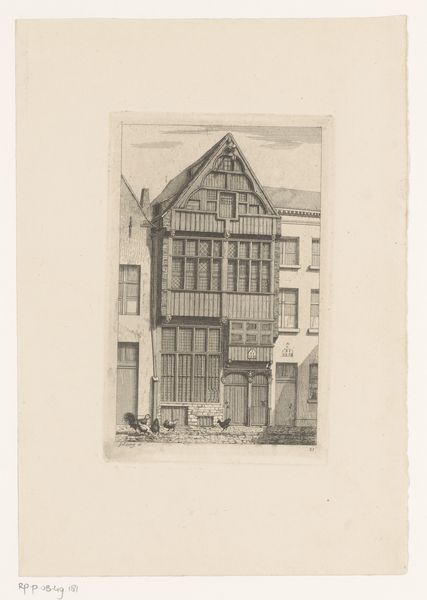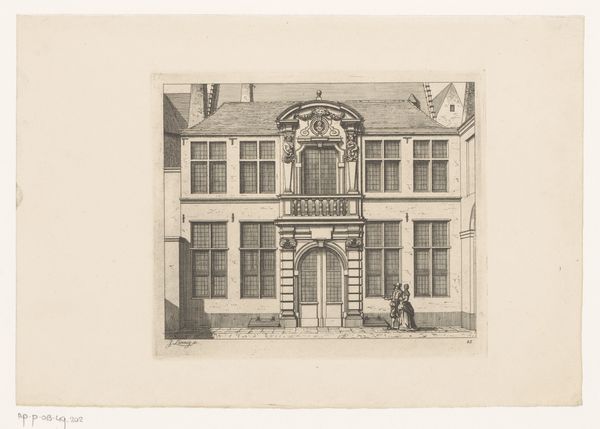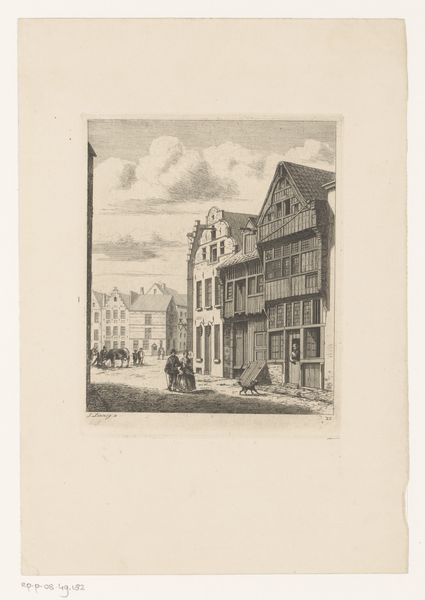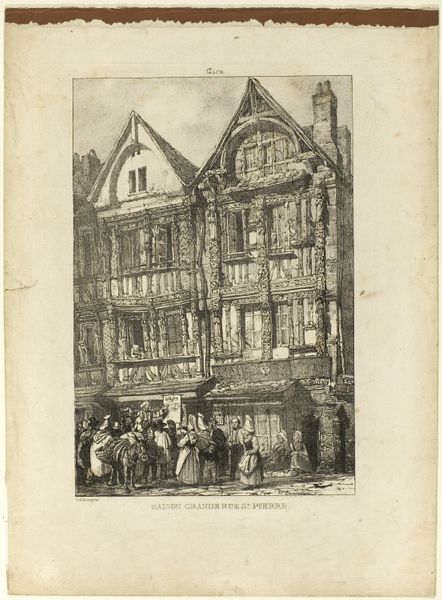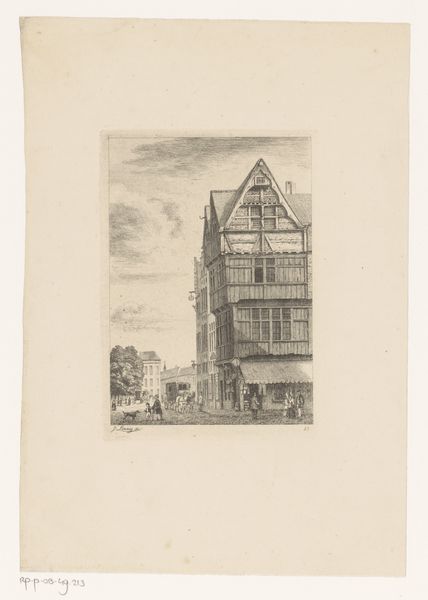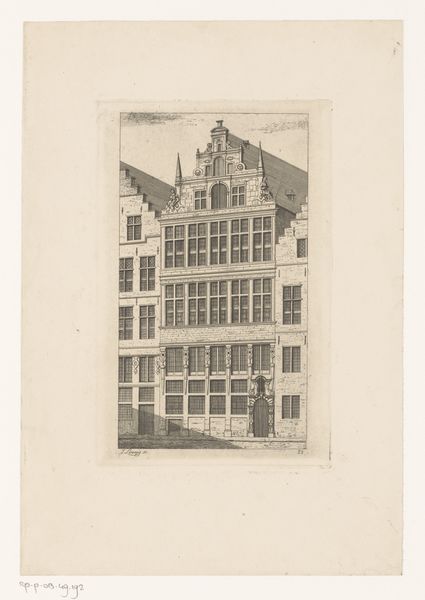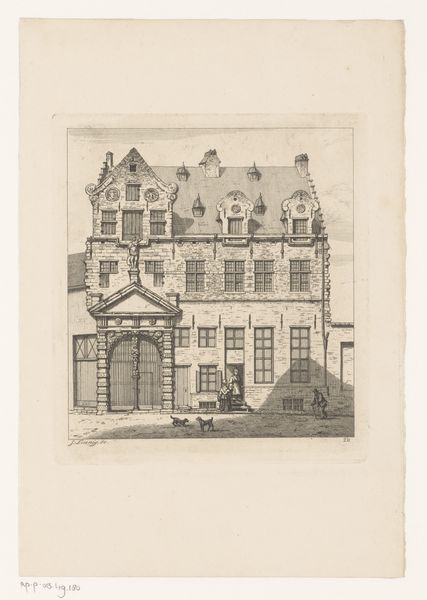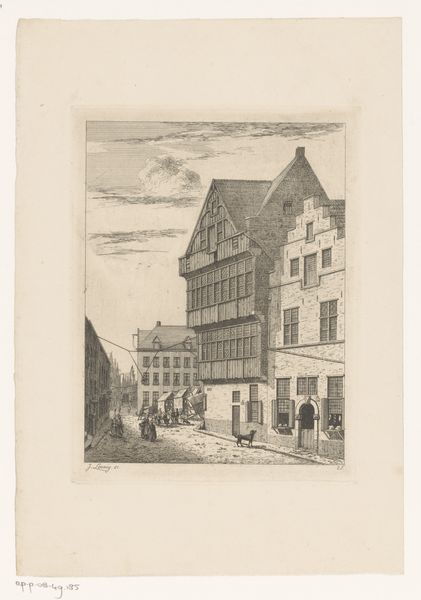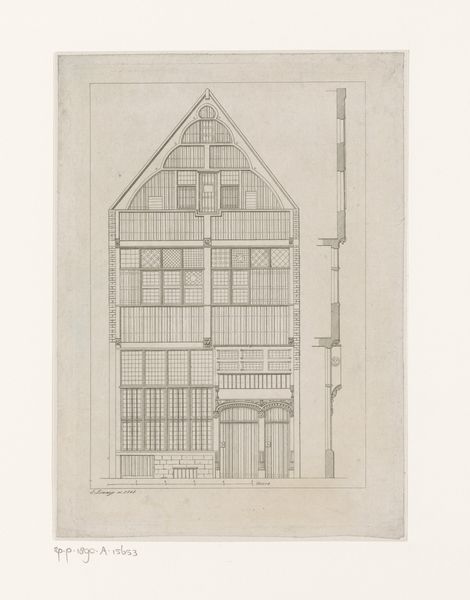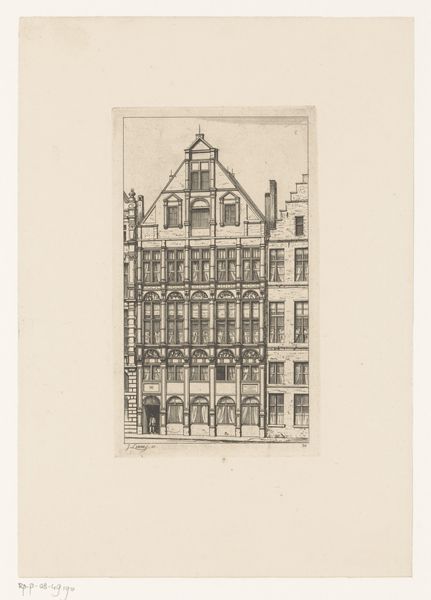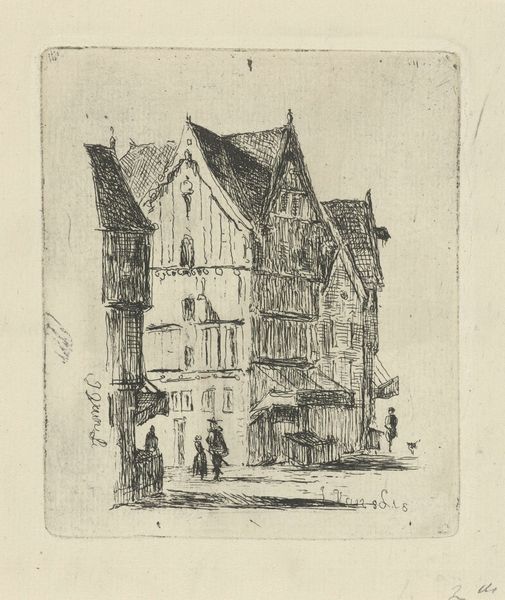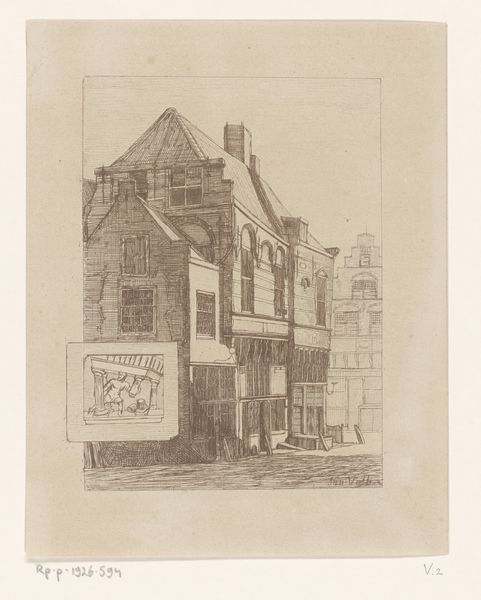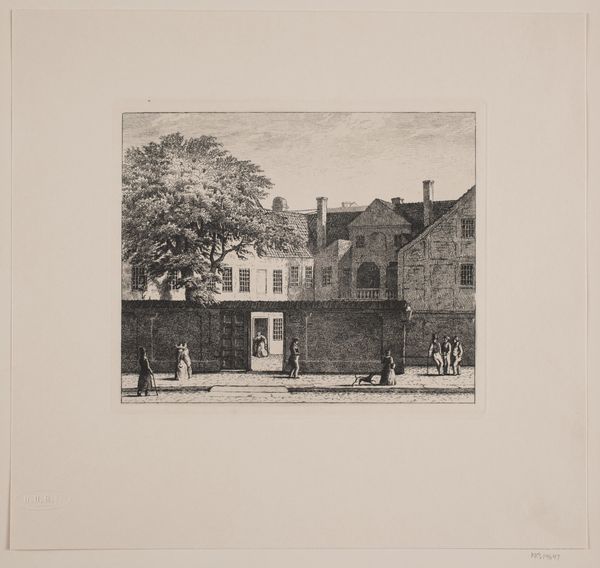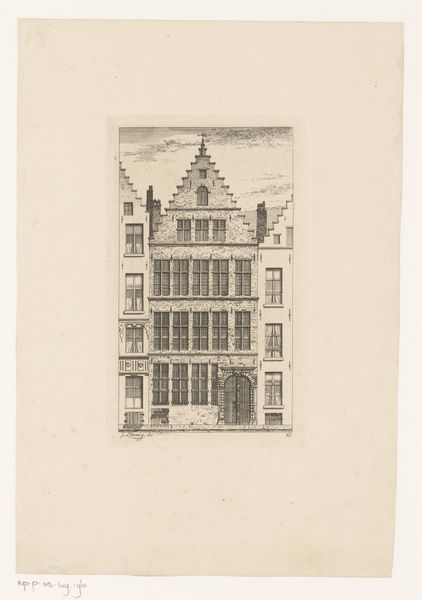
#
aged paper
#
toned paper
#
ink paper printed
#
parchment
#
old engraving style
#
sketch book
#
etching
#
personal sketchbook
#
pen-ink sketch
#
pen work
#
street
#
building
Dimensions: height 161 mm, width 201 mm
Copyright: Rijks Museum: Open Domain
Jean Théodore Joseph Linnig captured these wooden facades on Sint-Walburgisplein in Antwerp through etching. Look closely at the stepped gables, a prominent feature in Northern European architecture since the late Middle Ages, which symbolize civic pride and prosperity. These gables are not merely architectural; they evoke a lineage stretching back to ancient ziggurats, structures aspiring towards the heavens, reflecting a deep-seated human desire to connect with the divine. The stepped form reappears throughout history, adorning reliquaries and cathedrals, each time imbued with a sense of reaching for something beyond the earthly realm. Consider how the regularity and repetition of steps might subconsciously mirror our own life cycles, ascending and descending through various stages. This architectural rhythm engages us on a visceral level, stirring feelings of aspiration, stability, and the cyclical nature of existence. Notice how the dog crosses the square, a silent observer of human affairs, how it adds a layer of everyday life to the scene. It's a reminder of the continuous, cyclical progression of symbols, resurfacing, evolving, and taking on new meanings across history.
Comments
No comments
Be the first to comment and join the conversation on the ultimate creative platform.
